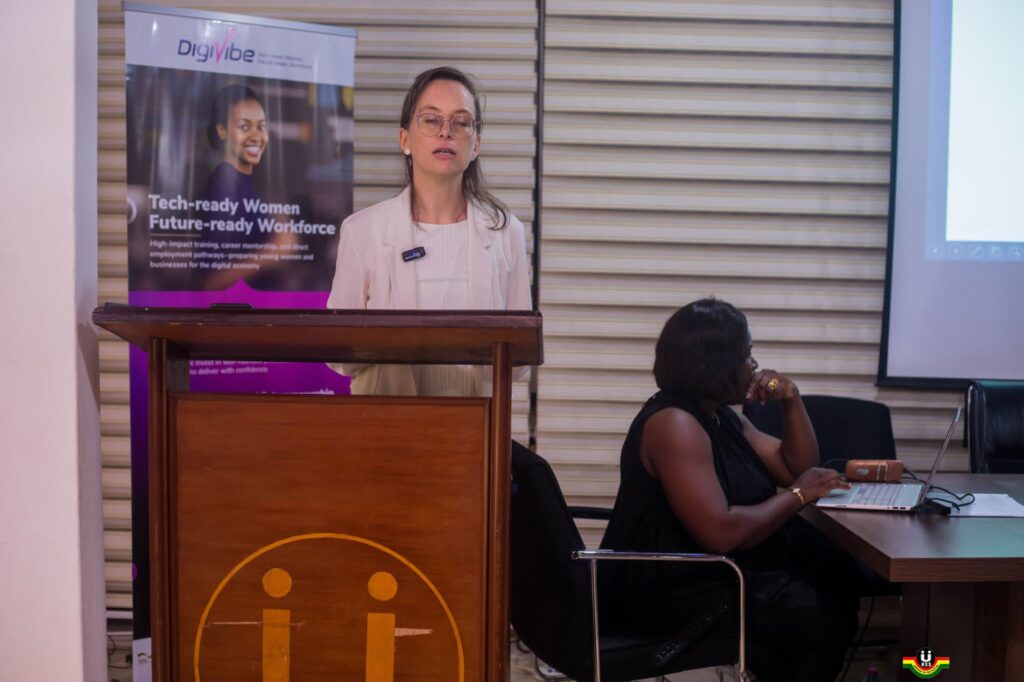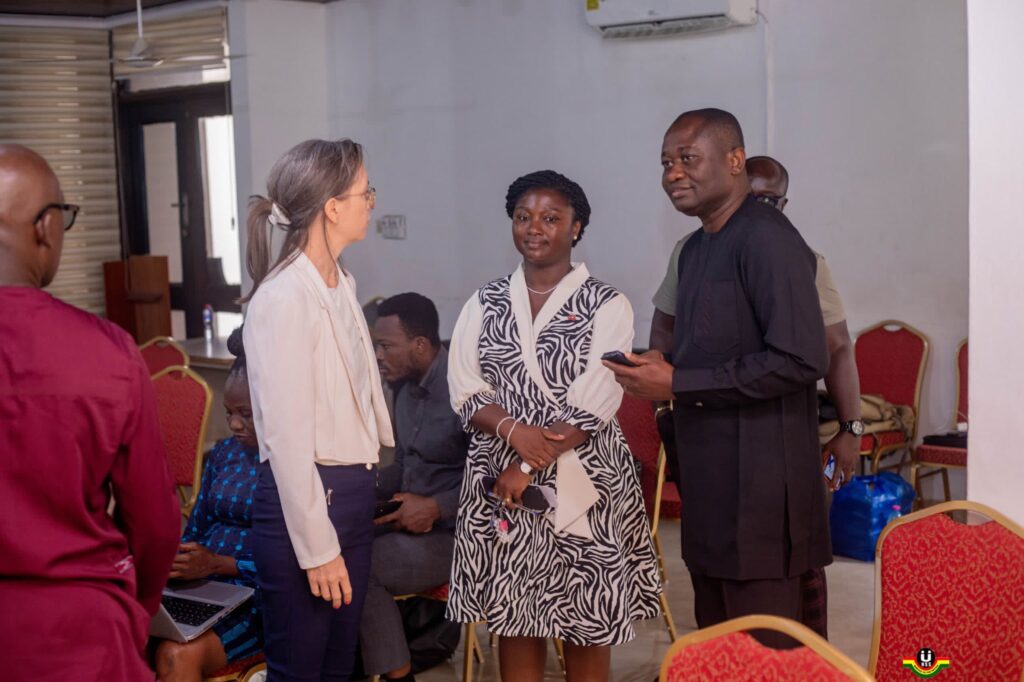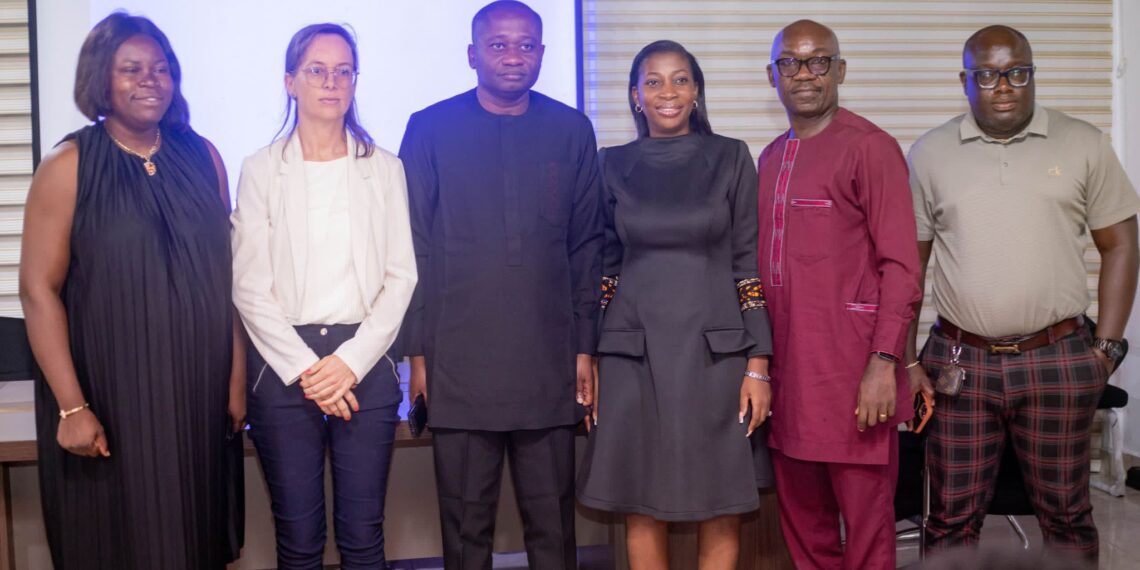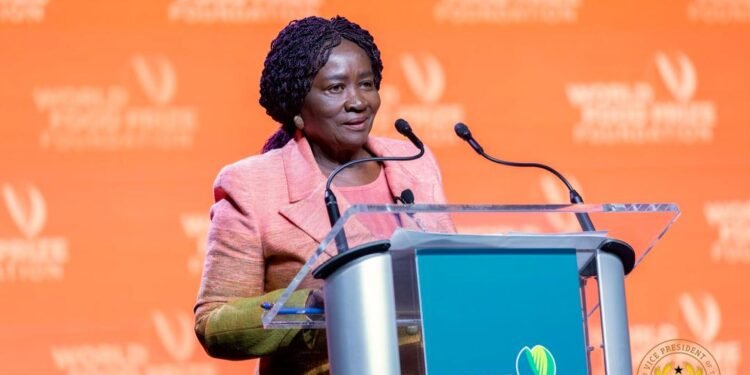The National Service Authority (NSA), in collaboration with the AFOS Foundation for Entrepreneurial Development Cooperation and other stakeholders, has launched Digivibe, an initiative aimed at equipping young women and businesses with critical digital skills.
The unveiling ceremony took place at the NSA Headquarters in Accra, with officials and partners outlining the initiative’s broad objectives and implementation strategies.
The programme seeks to position participants for success in an increasingly tech-driven global economy. According to organisers, Digivibe will bridge multiple gaps through a multi-pronged approach combining training, mentorship, consultancy, and job placement services.
At the heart of the initiative is a push to close what stakeholders describe as four key gaps: the digital divide, the exposure gap, the employment gap, and the gender gap. Addressing journalists at the launch, AFOS Project Manager Hanna Schlingmann explained the holistic nature of the programme.
“Digivibe is designed to equip young women, young professionals, and businesses not only with digital skills but also with the confidence and exposure required to succeed in a tech-driven economy”
Hanna Schlingmann, AFOS Project Manager
She further noted that one of the initiative’s standout innovations is the “She Consult” programme. The concept, according to her, turns female ICT graduates into junior consultants who, in turn, offer digital solutions to local businesses while gaining real-world experience.

“It’s about shifting mindsets – empowering participants to become not just tech ready, but future ready,” Schlingmann added.
The programme’s two-year implementation plan includes an ambitious training agenda, with over 1,000 women set to benefit from ICT and soft skills modules delivered via an AI-powered, self-paced virtual platform known as Digivibe Career Essentials. Schlingmann outlined expected outcomes in numbers.
“We mentor at least 800 female graduates in the early stages of their careers, place more than 400 women in ICT-related roles, engage over 45 companies to provide mentorship and job placements, and train 270 graduates to become junior consultants offering digital support to businesses”
Hanna Schlingmann, AFOS Project Manager
Feedback from early adopters has been positive. Schlingmann cited an example of an employer who had recruited a junior consultant through Digivibe and praised the consultant’s professionalism and technical competence, calling the programme “an excellent source of emerging IT professionals who are ready to make a real impact.”
NSA Endorsement
The Director General of the National Service Authority, Felix Gyamfi, stated that Digivibe fits well within NSA’s 2025 agenda.
“This project is in perfect alignment with our strategic priority for the year – deploying a majority of National Service personnel to the private sector”
Felix Gyamfi, Director General of the NSA
He highlighted the private sector’s central role in driving economic growth, arguing that it offers young people the hands-on experience and lifelong skills they need to thrive.

“We are opening our doors wide to ensure this programme thrives. The synergy between our goals and this initiative is not just timely, it’s imperative”
Felix Gyamfi, Director General of the NSA
For other stakeholders, Digivibe represents a meaningful push toward inclusive economic empowerment.
Eunice Adjei, Executive Director and National Project Coordinator of the Women Entrepreneurs Rise Network (WeRise), affirmed that the programme aligns with her organisation’s vision.
“Digivibe brings the digital tools and mentorship our members need to grow and scale,” Adjei said. She called on all eligible women and businesses to seize the opportunity to become more competitive and responsible contributors to society.
The initiative’s development was backed by data and field research. Odelia Ntiamoah, Global Director of the Oxford Africa Women Leadership Institute, shared findings from a study conducted with support from the Swiss Embassy.
The research revealed substantial digital skills deficiencies among women-led enterprises, especially in areas such as digital marketing and accounting. “This initiative offers a well-timed, impactful remedy,” Ntiamoah stated.
The Digivibe initiative is expected to contribute significantly to national efforts aimed at digital transformation and inclusive growth, especially among women and small businesses.
Its emphasis on practical experience, mentorship, and industry collaboration positions it as a strategic tool in addressing unemployment and capacity gaps within the country’s tech ecosystem.
READ MORE: Kenya Backs Morocco’s Autonomy Plan For Western Sahara























